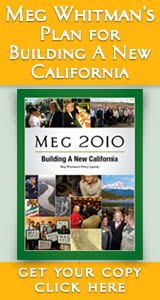We'll get to that question near the end, because it's more relevant than you might think, but can only be answered by a beginning.
If Republicans are going to be presented with two Mormon candidates in 2012, it's important that we resolve the question right now -- is Mormonism a cult?
Perhaps the best resource is Jeremy Gunn's academic piece "The Complexity of religion and the definition of 'religion' in international law." If you're into that sort of thing, knock yourself out. Academia is about establishing rigid conceptualizations that turn out to be porous rags in the end. That's not to say those conceptualizations are unworthy; it's only to say that we're always reduced to "I think; therefore, I am." So keep that in mind while reading.
But if there's any sort of consensus about what differs religion from a cult, there are two things. Time and cultural acceptance. And often, the two go hand-in-hand (which is precisely why the definitions of "religion" and "cult" are so porous).
At one point or another, all religions were cults. Christianity fulfilled even the broadest of definitions, and certainly, in its infancy, violated what the IRS defines as "religion" now.
On the other hand, Mormonism meets all of the IRS' requirements of recognition, while still retaining stigma. So is it a cult?
That's a tricky question because there are relative and even regional stigmas associated with Christianity. So how do you sort that out? You sort that out, because even with stigmas attached, a Hollywood director would call Christianity a religion. Time has stripped it of enough stigma in America; its existence has become so prevalent that even those wishing to discriminate acknowledge it as a religion.
Therefore, if one of the most common criteria for inclusion as a religion is relative cultural acceptance, Mormons face a higher climb toward religious acceptance. They simply haven't had the time to remove stigmas. And it's not because of doctrinal differences. The differences with Christianity are very real, but so differ the unitarians.
Now to come full circle. If time and cultural acceptance are broadly agreed barometers for religious definition, it's possible that both could work together to remove Mormonism's stigma as a cult.
And Mitt Romney may play a significant role.
As Republicans, specifically, and Americans, in general, become increasingly familiar with a Mormon who not only functions, but excels in both his personal and public relationships, stigma may be erased.
The question is: how quickly can it be erased, so that its stigma, if not entirely removed, is such that people won't choose to, for example, vote for someone based on that stigma?
It could be that Mitt Romney is able to do more to undo the notion of Mormonism as a cult than all the Mormon missionaries, towering temples, and sun-drenched commercials, combined. And he could do it very quickly.
He might even be able to pull off what couldn't be done for generations in one election cycle.
Time and stigma. Inexorably linked.
Evangelicals --especially Mike Huckabee -- are obviously concerned about this. You'll find evangelical after evangelical who defines Mormonism as a cult solely based on doctrinal differences. And they don't want those doctrinal differences blurred. Thus, they persist in perpetuating the notion of Mormonism as a cult, and not just a competing religion.
So then, while the doctrinal differences between the two are very real, there is one common feature they share: Both Christianity and Mormonism are religions.
Breaking news on rising GOP stars and the 2012 Republican Presidential nomination
About GOP12
Breaking news and commentary on rising GOP stars and the 2012 Republican Presidential nomination.
Follow GOP12 on Twitter!
Email stuff here.
Christian Heinze writes GOP12.
Follow GOP12 on Twitter!
Email stuff here.
Christian Heinze writes GOP12.
The Prospective Candidates
- Bob Corker
- Bobby Jindal
- Charlie Crist
- Dick Cheney
- Dirk Kempthorne
- Eric Cantor
- Gary Johnson
- Haley Barbour
- Jim DeMint
- John Thune
- Mike Huckabee
- Mike Pence
- Mitch Daniels
- Mitt Romney
- Newt Gingrich
- Rick Perry
- Ron Paul
- Sarah Palin
- Sean Penn
- Tim Pawlenty
- Casino Not On Gamstop
- Casinos Not On Gamstop
- Non Gamstop Casinos UK
- Best Non Gamstop Casinos
- List Of Non Gamstop Casinos UK
- Betting Sites
Conservative
- Ace of Spades HQ
- American Thinker
- Andrew Sullivan
- Atlas Shrugs
- Big Hollywood
- California Conservative
- Common Sense Political Thought
- Conservatism Today
- Conservative political report
- David Brody
- Dick Morris
- Discover the Networks
- Doubleplusundead
- Erick Erickson
- Focus on the Family's Citizen Link
- Free Republic
- Gateway Pundit
- Gay Patriot
- Hip Hop Republican
- Hit and Run
- Hot Air
- Instadpundit
- Josh Painter
- Libertarian Republican
- Little Green Footballs
- Matt Lewis
- Michelle Malkin
- Moon Battery
- Net Right Nation
- News Busters
- Powerline
- Professor Bainbridge
- Q and O Online Magazine
- Red State
- Right Wing News
- Right Wing Nuthouse
- Right Wing Video
- The Corner
- The New Majority
- The Next Right
- The Weekly Standard Blog
- Vodkapundit
- Wizbang
Liberal
- America Blog
- Andrew Sullivan
- Balloon Juice
- California Progress Report
- Crooks and Liars
- Daily Kos
- Democracy Arsenal
- Eschaton
- Ezra Klein
- Feministing
- Firedoglake
- Gerald Seib
- Glenn Greenwald
- Hilzoy
- Hullabaloo
- James Fallows
- Kevin Drum
- Media Matters
- Pandagon
- Salon War Room
- Street Prophets
- Talk Left
- Talking Points Memo
- Tapped
- The Notion
- The Washington Monthly
- Think Progress
- Wonkette
- Yglesias
GOP stars and prospective 2012 contenders
- 2012 Cheat Sheet (2)
- Bob Corker news (91)
- Bob Corker video (6)
- Bob McDonnell news (90)
- Bob McDonnell video (10)
- Bobby Jindal news (250)
- Bobby Jindal video (11)
- Charlie Crist news (436)
- Charlie Crist video (10)
- Crist vs Rubio (287)
- Dan Quayle news (2)
- Dick Cheney news (8)
- Dick Cheney video (1)
- Dirk Kempthorne news (14)
- Eats (292)
- Electoral Landscape (77)
- Eric Cantor news (179)
- Eric Cantor Video (25)
- Fiorina vs DeVore vs Campbell (47)
- Flashback Friday (2)
- Gary Johnson news (34)
- Gary Johnson video (4)
- General Petraeus (10)
- Geoge Pataki vs Mitt Romney (1)
- George Pataki news (19)
- George Pataki video (3)
- Haley Barbour news (79)
- Hutchison v Perry (273)
- Jeb Bush news (63)
- Jeb Bush video (3)
- Jenny Sanford news (20)
- Jim DeMint news (195)
- Jim DeMint video (16)
- John Ensign news (70)
- John Ensign video (3)
- John Thune news (224)
- John Thune video (18)
- Jon Huntsman news (150)
- Jon Huntsman video (3)
- Jon Kyl news (40)
- Kay Bailey Hutchison news (40)
- Kay Bailey Hutchison video (3)
- Lists (217)
- Liz Cheney news (1)
- Lou Dobbs news (3)
- Luis Fortuno news (1)
- Marco Rubio news (11)
- Mark Sanford news (435)
- Mark Sanford video (22)
- Michele Bachmann news (48)
- Michele Bachmann video (5)
- Mike Bloomberg news (1)
- Mike Huckabee news (493)
- Mike Huckabee video (77)
- Mike Huckabee vs Mitt Romney (15)
- Mike Huckabee vs Sarah Palin (5)
- Mike Pence news (36)
- Mike Pence video (6)
- Mitch Daniels news (162)
- Mitch Daniels video (13)
- Mitt Romney news (573)
- Mitt Romney video (33)
- Mitt Romney vs Jon Huntsman (5)
- Mitt Romney vs Mike Huckabee (15)
- Mitt Romney vs Sarah Palin (32)
- Newt Gingrich news (341)
- Newt Gingrich Ominpresent Won't Go Away Energizer Bunny Tale as Old as Time Another Saw Movie Watch (14)
- Newt Gingrich video (44)
- Newt v Palin (3)
- Nikki Haley news (17)
- Nikki Haley video (3)
- Orphan posts (519)
- Paul Ryan news (3)
- Pawlenty v Palin (1)
- Polls (120)
- Rick Perry news (158)
- Rick Perry video (11)
- Rick Perry vs Bill White (6)
- Rick Santorum news (46)
- Rick Santorum video (4)
- Romney v Pawlenty (15)
- Ron Paul news (32)
- Ron Paul video (12)
- Rudy Giuliani news (110)
- Rudy Giuliani video (4)
- Rush Limbaugh news (30)
- Sarah Palin brings energy to the party (8)
- Sarah Palin news (1606)
- Sarah Palin nightcap (24)
- Sarah Palin video (46)
- Sarah Palin vs Mike Huckabee (5)
- Sarah Palin vs Mitt Romney (32)
- Scott Brown news (28)
- Scott Brown video (2)
- Senator Votes (31)
- Tim Pawlenty news (474)
- Tim Pawlenty video (42)
- Tom Ridge news (3)
- Whitman vs Poizner (213)
News and Commentary
- 538
- Atlantic
- Ben Smith
- Campaign Diaries
- CBS Political Hot Sheet
- Christian Science Monitor
- Christianity Today
- CNN's Political Ticker
- Conservative News
- Daily Beast
- Drudge Report
- Economist
- Election Advantage
- Gallup
- Glenn Thrush
- Huffington Post
- Los Angeles Times
- McClatchy Washington Bureau
- Mike Allen's Playbook
- Nation
- National Journal Hotline on Call
- National Review
- New York Times
- New Yorker
- Newsmax
- Newsweek
- Pajamas Media
- Pet Shop Boys Official Site
- Political Punch
- Political Wire
- Politico
- Politics Daily
- Pollster
- Post Politics
- Rasmussen Reports
- Roll Call
- Senatus
- Slate
- TechPresident
- The Buzz Florida Politics
- The Caucus
- The Fix
- The Hill
- The Hill Blog Briefing Room
- The Iowa Republican
- The Scorecard
- The Swamp
- Time
- Town Hall
- Wall Street Journal Opinion
- Washington Post
- Washington Times
- Washington Whispers
- Weekly Standard
- Women on the Web
- World Magazine
- World Net Daily

